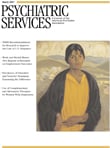This book made me think of My Dinner With Andre, Louis Malle's 1981 film in which the viewer observes an extended and idiosyncratic conversation between Wallace Shawn, actor and playwright, and Andre Gregory, noted theater director. Shawn portrays the bemused, slightly impatient, pragmatic, but curiously unsettled Everyman, who tries to reassure himself that he understands his life and is reasonably comfortable with it. Gregory recounts his own eccentric quest for meaning and significance, prompted by his fear that he is being extinguished by modernity's banal indifference to matters of the soul.
Where the film is subtle, allusive, experiential, ultimately mysterious, affirming of fundamental humanistic principles, and above all hopeful, Anthony Reading's book, a record of his lifetime interest in the psychology of hope, manages to say quite a lot about the state of our understanding of how the brain perceives and organizes its response to its environment. In doing so the brain generates constructs about the self and about the future, without conveying any unique insight into why and how hope is such a unique and powerful emotion.
In Hope and Despair, the tone is academic, polemical, and ultimately reductive, despite its eminent scholarship. The book offers little to enliven a topic that is so important to us as persons, not only as clinicians. It is not the best review of cognitive psychology that I have seen, though it is comprehensive. There are curious nonsequiturs and quote piled on quote to seemingly address questions, or points of view, that remind me of other books I have read that appear to be constructed, like a literature review, through consultation with a file of index cards. When it comes to discussing how we can use hope as a means to help others, encompassing all our differences, Reading appears not to have a point of view or dives behind opinions of others, as if he is reluctant to take this issue on. This is most clear when he devotes a scant eight pages to a discussion of "Science and Religion as Ways of Knowing."
To be fair, Reading says his aim is to describe the state of the art in our understanding of the mind with respect to what cognitive psychology, neurophysiology, and related empirical studies can tell us about how the brain creates hope as a cognitive construct, a type of future perception. He laments the lack of serious study of hope in the experimental psychological literature, though he presents a number of studies addressing issues related to it. Reading's own pragmatism—and excitement about our increasing understanding of the brain—blinds him to why the study he envisions is unlikely to proceed from the type of research he illustrates. Given his stated depth of interest in the subject, I think he could have written a more interesting and evocative book.
This brings me back to the film. As I was reading, I imagined that I was listening to Dr. Reading as I would a dinner companion discoursing at sometimes tiring length on a topic of interest, about which he was extremely well informed. But instead of being in the presence of a mind that is provocative, curious, or engaging, I felt like I was sitting through a didactic exercise, meant to convince me that hope could be explained through a better understanding of cognitive systems. And I found myself longing to know what Andre Gregory, in all his credulous, outlandish, and whimsical eccentricity, would have to say about why we have hope, and why we need it so.

